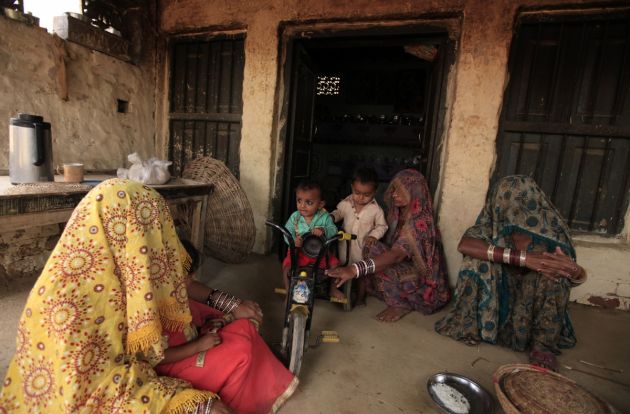'Stop faith-based killings' say UN experts in report on Pakistan Muslim minority

In Pakistan the plight of Christians and other religious groups such as Hindus has been recently documented.
But in the Muslim-majority country a minority Islamic group is facing persecution says a report by U.N. experts.
United Nations experts on freedom of religion, minority issues, and summary executions on Monday called on Pakistan to adopt urgent measures to stop faith-based killings.
The experts have called upon Pakistan to ensure the security of the Ahmadiyya Muslim community, whose faith is outlawed in the country.
They also called for the security of other minority religious groups such as Christians and Hindus.
About 96 percent of Pakistan's 196 million people are Muslims (90 percent Sunni).
The rights experts' call came after renewed violent attacks against Ahmadiyya Muslims in Pakistan, in which two members of the community have been killed along with a number of arrests on blasphemy charges.
Pakistan has some 3.6 million Christians who account for about two percent of the population, and Christian communities also report being targeted by the misuse of draconian blasphemy laws.
The Archbishop of Canterbury Justin Welby said on May 29 in Lahore, Pakistan's Christians are a people under siege and he joined calls for their churches to be protected and for them to be able to worship in safety.
These attacks on the Ahmadiyya Muslims are believed to be related to their choice and peaceful practice of religious beliefs.
"I am very concerned by the recent surge of violent attacks against Ahmadiyya Muslims by militant extremists.
"Such violence is fueled by existing blasphemy legislation in Pakistan particularly targeting minorities," the Special Rapporteur on freedom of religion or belief, Heiner Bielefeldt, said.
"I urge Pakistan to guarantee the right to freedom of religion or belief of members of minority religious communities."
Bielefeldt has in other reports spoken out about the rights of Christian and other reigious minorities where draconian blasphemy laws that carry the death sentence are often used by Muslims in communities to settle disputes.
'THREATS BY MILITANT EXTREMISTS'p
"Pakistan must urgently put in place protective measures to ensure the personal security of Ahmadiyya Muslims, as well as any other religious minorities living in the country, under threat of hostility and violence by militant extremists," the Special Rapporteur on minority issues, Rita Izsák, stressed.
"The full range of rights of religious minorities must be guaranteed in law and in practice."
"In addition to robust protective measures, the authorities in Pakistan need to undertake urgent and firm steps to bring to justice the perpetrators of those killings," stressed the Special Rapporteur on extrajudicial, summary or arbitrary executions, Christof Heyns.
"Showing determination in ensuring accountability in such cases must be a key element of the government's efforts to reduce the attacks and guarantee the safety of not only the Ahmadiyya Muslims, but other vulnerable groups."
• On 13 May 2014, four Ahmadiyya Muslims were arrested by police on blasphemy charges in Sharaqpur, Pakistan.
While three were released on bail, Khalil Ahmad was kept in detention, where he was shot dead by a visiting 15 year-old teenager, who brought a firearm, concealed in his lunch box, into the station.
• On 26 May 2014, Mehdi Ali Qamar, a U.S. citizen and a member of the Ahmadiyya Muslim community, a doctor on a humanitarian mission to Pakistan, was murdered in Rabwah, Pakistan.
He was killed by two unknown men on motorbikes, while taking an opportunity to visit the graves of his relatives at a local cemetery.
Seven members of the Ahmadiyya Muslim community were reportedly killed in 2013, the U.N. report said.